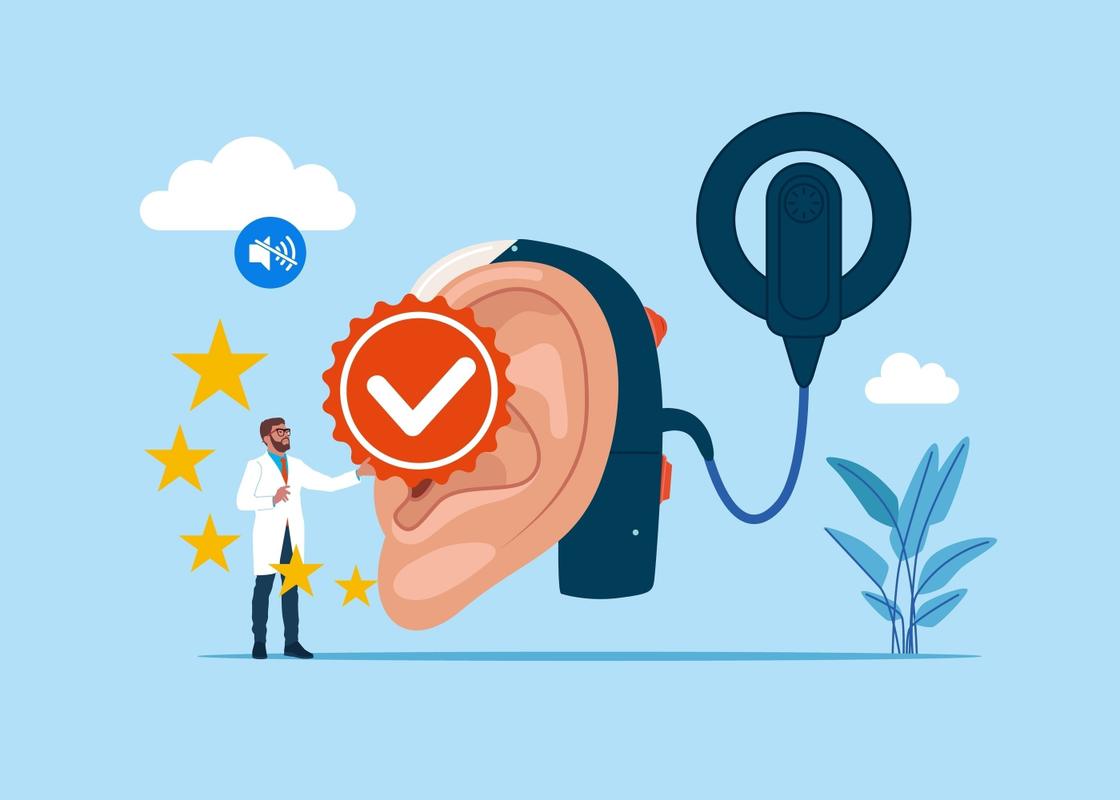In Belgium about 40 children are born each year who are deaf on one side. UZ Leuven research, performed in collaboration with UGent, UZ Antwerpen and the European Institute for ORL-HNS Sint-Augustinus Ziekenhuis shows that untreated one-sided deafness can influence language and cognitive development of children, in addition to the typical hearing problems. Later in life, one-sided deafness is linked to a higher risk of psychosocial difficulties. Children with one-sided deafness usually can't pinpoint where sounds are coming from, which is dangerous in traffic for instance. It is for them also difficult to follow in class and in noisy environment, social contacts are more challenging, because they can't follow conversations properly. All of this has an impact on their future.
Added value
For these children and youngsters, a cochlear implant (CI) is a positive evolution, as shown by the research. A CI is an electronic medical device for deaf people or people with (very) severe loss of hearing. The processor, the external part of the implant, catches the sounds and turns it into a digital code. The internal implant converts that digital information in an electric signal that stimulates the auditory nerve. The brains then receive the sound that was transferred via the auditory nerve, enabling you to hear again. Such an implant will set you back some 15,000 euro, which is excluding the five-yearly replacement of the processor and the life-long aftercare. Which is why minister Vandenbroucke is further extending the reimbursement for children and youngsters. For them no distinction will be made between one-sided or complete deafness. In addition, the age for all problem areas will be raised to 18 years.
Actual conditions
As of 1 January 2024 children and youngsters that are deaf on one side will also be able to count on a cochlear implant should a hearing aid no longer suffice. This extension means that for every child or youngster with severe hearing problems to even deafness, there is now a reimbursed solution. Specifically it concerns reimbursement for children up to the age of 4 years with congenital one-sided deafness. In case of acquired one-sided deafness this will be possible up to the age of 18 years. For implanting a second cochlear implant in children and youngsters with severe deafness in both ears (a minimum of 70 decibel) the age is raised from 12 to 18 years. In case of asymmetric loss of hearing (minimum of 30 decibel in one ear and severe loss of hearing in the other) the age for reimbursement of a cochlear implant will be raised to the age of 18 years.
With this, Belgium takes an important step towards high-quality care, founded on excellent science.
Prof. dr. Nicolas Verhaert (nose, throat and ear specialist at UZ Leuven and head of the CI team): “This study clearly shows an added value for a cochlear implant on the hearing-impaired side. It is comforting that, in most cases, we can treat and repair with a CI if a child has no hearing or loses its hearing on one side. This gives the patient a perspective on better access to hearing and communication, as shown by the study. It ensures that the deaf ear and brain continue to be stimulated and not everything depends on the other ear, which can deteriorate in the long run. What's more, raising the age to 18 years is a good thing: it gives the youngster the certainty that if the hearing of the second ear drops off during puberty, a CI can still be fitted. Belgium is thus taking an important step towards high-quality care based on excellent science, coordinated by the Experimental ORL/ KU Leuven research group.
More information about the trial
The research is a longitudinal multicentric study (2014-2024) with UZ Leuven as coordinator, in collaboration with UGent, UZ Antwerpen and the European Institute for ORL-HNS Sint-Augustinus Ziekenhuis. In longitudinal research the same test persons are being examined repeatedly to determine whether any changes have occured over time.
The study examines whether a cochlear implant (CI) can improve the auditory, language and cognitive development of one-sided deaf children. In contrast to a hearing aid, a cochlear implant can enable hearing with two ears (partly) as a result of the direct control of the auditory nerve, which sends information to the auditive cortex in the brain.
Now, almost 10 years after the start of the CICADE study, results unanimously show that children with one-sided deafness experience a positive evolution with a cochlear implant, both in terms of language skills and understanding speech in noisy circumstances. The first differences in children with and without a CI were already noticed at the age of 2 years and a half.
Read the publications here.
Read the press release by the cabinet of vice prime minister and minister of Social Affairs and Public Health Frank Vandenbroucke here.
